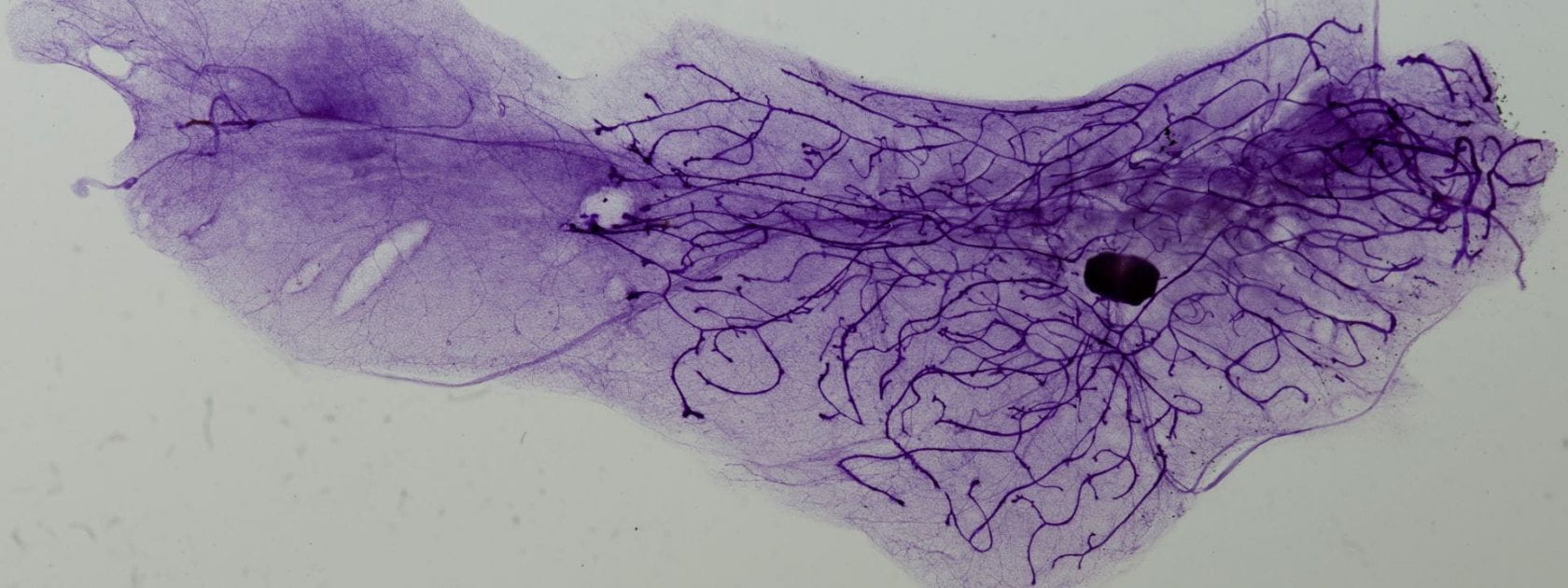MicroRNAs
Mature microRNAs (miRNAs or miRs) are small noncoding RNA molecules approximately 19-22 nucleotides (nt) long. miRNAs are typically transcribed as long primary transcripts (pri-miRNA) and are processed by Drosha to pre-miRNAs and then by Dicer into mature miRNAs. Mature miRNAs are incorporated into a ribonucleoprotein complex known as the RNA-induced silencing complex (RISC). Most miRNAs in mammals direct the RISC complex to target mRNAs and this complex binds to the 3’-UTRs of mRNAs using the seed region (nucleotides 1-8) of the miRNA and induce translational repression and mRNA destabilization. Since only the seed region of miRNAs is required to bind mRNA, each miRNA can regulate tens, hundreds or thousands of mRNAs. miRNAs have been reported to regulate over 60% of the protein coding genes and thus represent one of the main classes of gene regulatory molecules in mammalian cells.
The miR-200 Family
The miR-200 family consists of 5 members, miR-200a, miR-200b, miR-200c, miR-141 and miR-429 which are arranged into two clusters, miR-200c/miR-141 and miR-200b/miR-200a/miR-429. The mir-200c/miR-141 cluster is located on human chromosome 12 and murine chromosome 6 while the miR-200b/miR-200a/miR-429 is located on human chromosome 1 and murine chromosome 4. The miR-200 family has been implicated in regulating a number of processes in cancer biology however their most studied is their regulation of epithelial to mesenchymal transition or EMT.
Our Research
Using, our MTB-IGFIR mammary tumors and cell lines derived from these tumors we found that all members of the miR-200 family are repressed in tumors/cells with mesenchymal characteristic (RSTs, RJ348, RJ423, MDA-MB-231) compared to those with epithelial characteristics (PMTs, RJ345, MCF-7). Thus far miR-200c, the miR-200c/141 cluster and the miR-200b/200a/429 clusters have been stably re-expressed in RJ423 cells and MDA-MB-231 cells. Re-expression of miR-200c or the miR-200b/200a/429 cluster in RJ423 delays mammary tumor development and metastasis (miR-200b/200a/429 cluster only) and re-expression of the miR-200c/141 clusters impairs mammary tumor development of MDA-MB-231 cells. Studies are currently underway to identify the mechanisms through which miR-200s impair mammary tumor growth and progression.


